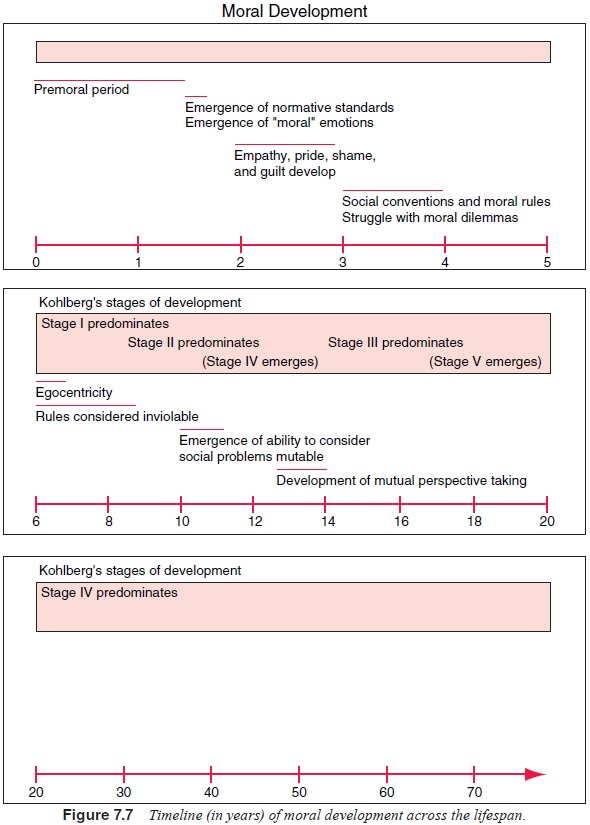Chapter: Essentials of Psychiatry: A Psychiatric Perspective on Human Development
Moral Development
Moral Development
The newborn infant lives in an interactive world
but one that is free of moral directives or structure. However, by the second
year of life, the emergence of “moral emotions’’ such as empathy, pride,
embarrassment, shame and guilt demonstrates that the be-ginning of a code of
moral behavior, in the most primitive sense, is being established. Moral
emotions evoke a sense of shared ex-perience with important others that is
central to the process of moral internalization. By 36 months, most children
demonstrate the internalization of parental standards even when their parents
are not available to provide cues or reinforcement. The impor-tance of emotions
in the early evolution of moral behavior during the preschool years represents
a distinct departure from the more traditional perspective that moral
development does not occur until the establishment of concrete operation.
During the school years, the importance of rules
and adher-ing to them becomes well defined. The moral code tends to be one of
absolutes with strong consequences for transgressors. Extreme examples of
children turning their parents into authorities be-cause of political
resistance provide a sobering perspective on the strength of the convictions of
some children. However, for most boys and girls during this period,
interpersonal relationships with

peers or siblings are a consideration in the
determination of “cho-sen outcomes’’ when situational paradigms designed to
clarify moral priorities are presented (Smetana et al., 1991). There appears to be some gender difference in the
quality of mercy demonstrated during the school years. Girls are more concerned
with aspects of human interaction and boys preferentially seek blind justice.
The later evolution of moral principles is a
complex pro-cess. With the development of abstract reasoning, adolescents
progress through Kohlberg’s (1964) stages of conventional mo-rality, which
entail meeting the expectations of others (stage 3) and subsequently accepting
the maintenance of societal norms and rules as an appropriate standard (stage
4). These stages do not progress in a strictly sequential manner. Stages 5 and
6, which ultimately lead to the conviction that moral principles of justice
should supersede those of human-made laws, have not been eas-ily codified
either, given the influence of complex emotions on behavior and the
well-documented moral inconsistencies that oc-cur over the course of adult
development (Gibbs, 1979).
A timeline of moral development during the course
of the lifespan is presented in Figure 7.7.
Related Topics